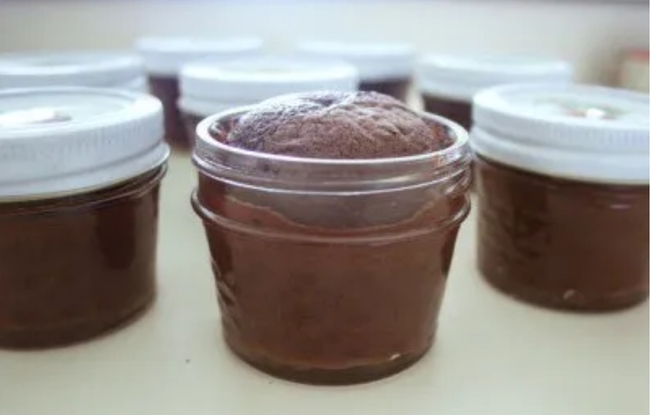
Response: Thank you for contacting us with your question about canning breads and cakes to give as gifts.
Baking cakes or breads in canning jars and sealing them immediately after removing them from the oven has become a popular trend on social media. However, this practice is not only unsafe but also poses a significant risk of botulism, a potentially fatal foodborne illness. Here's why you should avoid this method:
The Process is Not Canning - As Penn State Extension explains, the actual process of baking bread or cake in a jar is not a form of canning. The product is baked in an open glass canning jar, and then a canning lid is placed on the jar immediately after it is removed from the oven. There is no further canning process applied, which means that the safety protocols essential for preventing botulism are not followed.
Moisture Content and Microorganism Survival - Many cake and bread recipes include ingredients like fruits, liquids, or vegetables, which increase the moisture content of the product. This added moisture creates a rich environment where microorganisms, including harmful bacteria, can survive and thrive. Additionally, the process of sealing the jar does not remove all the oxygen, leaving some available for these microorganisms to grow.
pH Levels and Pathogen Growth - Cakes and quick breads often have little or no acid, resulting in a pH above 4.6. Foods with a pH level above this threshold can support the growth of pathogenic organisms, including Clostridium botulinum, which causes botulism. Botulism is a severe and often fatal illness, and there are reported cases each year linked to improper canning practices.
Heat-Stable Bacteria and Underbaking - Studies conducted by various universities have shown that some bacteria are heat-stable and can survive the baking process. These bacteria can multiply during storage, leading to potential foodborne illness. Moreover, underbaked products are another serious issue with many available recipes, further increasing the risk.
Commercial vs. Home Methods - Commercially produced cakes and breads in jars are made safe by using additives, preservatives, and strict processing controls that ensure the food safety of the finished product. Currently, there are no reliable or safe home recipes for baking and sealing cakes or breads in jars and storing them at room temperature for extended periods.
Avoid the Risk - Using this technique to preserve cakes and breads is not recommended. The combination of high moisture content, low acidity, and the lack of a proper canning process creates a perfect environment for dangerous bacteria to grow, leading to a serious risk of botulism. Despite the popularity of this practice on social media, it is not safe, and the potential consequences far outweigh any perceived convenience or novelty.
By sharing this information, we can help prevent foodborne illnesses and ensure that people are aware of the dangers associated with baking cakes in canning jars.
RESOURCES AND PHOTO CREDIT
PennState Extension https://extension.psu.edu/food-preservation-setting-the-record-straight-on-canning-breads-and-cakes/